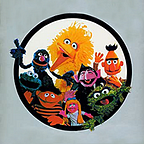“It is as though all the lessons of New Deal federal planning and all the sixties experience of the ‘local people,’ the techniques of the totalitarian slogan and the American commercial, the devices of film and the cult of the famous, the research of educators and the talent of artists had combined in one small television experiment to sell, by means of television, the rational, the humane, and the linear to little children.”
Renata Adler, in the New Yorker Article Titled
Cookie, Oscar, Grover, Herry, Ernie, and Company, 1972
I was recently watching something on youtube when I got an ad that shocked me. It was a Doordash commercial set in the unlikely location of Sesame Street. The Hamilton musical star Daveed Diggs strolls through the infamous neighborhood, proclaiming that the delivery of everything you might need is a click away.
I am fascinated by how political issues disseminate through public opinion and the pairing of Sesame Street and Doordash was odd to say the least. What was trying to be achieved in this combination? Doordash, a company known for being anti-worker, and Sesame Street once famous for being anti-corporate encapsulated in sing along songs by Pete Seeger and Frederick Douglass Kirkpatrick.
As an advocate for pro-worker policy, Doordash, and their efforts to prevent California’s Prop 22 from passing this last year, was on my mind before I saw the ad. The bill hoped to make delivery app-based companies classify their drivers as employees rather than independent contractors, which made them exempt from having to offer employee benefits. DoorDash, along with Uber, Lyft and Instacart, spent more than $200 million to defeat the bill. Their aggressive public relations campaign succeeded and won 58% percent of the vote. It was perceived as one of the biggest losses in the American labour movement in recent memory. Prop 22, along with countless settlements involving tip theft in several states, Doordash is now a leader in the new anti-labour agenda.
So how did this surprising collaboration happen? I decided I needed to research the origins of Sesame Street to find out.
In the wake of the counterculture movement of the 1960’s, children of Baby Boomers were watching more television than ever, meanwhile few opportunities for high-quality early childhood education were available. Young TV producer Joan Ganz Cooney began thinking about how to solve those problems. What emerged was Sesame Street, a program that’s quick pace mirrored punchy advertisements but had child development and education at its core. Paired with John Henson’s Muppets, a conscious and diverse caste, and hippy-esque aesthetics the show became a go-to for a new generation of parents. All with the belief that airing on the public broadcasting channel helped Sesame Street avoid corporate corruption.
There are, however rare, critiques of Sesame Street and its honest intentions. Diverting from its origin on PBS, it has steadily done more and more advertisement partnerships in recent years. Attempts of sponsorship on Sesame Street dates back to its first season. Cooney had initially hoped for the show to air on ABC or NBC and to gain corporate sponsorship.
Early producers on Sesame Street have admitted that commercials had an influence on the show’s short segment style, raising questions about whether the show fosters avid television consumption more than educational outcomes. Episodes often framed around current events, and featuring celebrities, have led some to speculate that the lessons in Sesame Street, develop an American pop culture literacy, opposed to actual literacy.
Regardless of whether or not these critiques are well founded, it is interesting that Sesame Street has continually leaned on its purity of social advocacy more than on its merchandise and commercial aims. Sesame Street’s portrayal of socio-economic inequality and diverse representation have been key, positive aspects of the show’s image from the beginning. It continues to create initiatives through the Sesame Workshop on issues ranging from literacy, Autism, Gender Equity, and Racial Justice among others. Commercial endeavors can be expected, but the undeniably democratic and equality-oriented legacy of Sesame Street makes the Doordash commercial all the more disappointing and counterproductive. For Doordash, is there a better way to craft its brand as earnest amidst scandals than with Big Bird by its side?
I wasn’t a huge Sesame Street watcher as a kid, yet I have always been aware of, and believed in it, as a rare, public good. The Doordash ad signaled to me an opportunity to re-examine the perception of Sesame Street as a left-leaning institution whose sole purpose is not profit. Its affiliation to PBS and it’s many social and educational initiatives are examples that it has made decisions informed by a “greater good” ideology. It makes me wonder how Sesame Street got to the point of endorsing Doordash of all things. For over 50 years it has navigated public and commercial interests in an unprecedented way. But like many symbols of liberal ideals, I fear laudable brands like Sesame Street are being coerced by immoral companies looking to save face. To the extent that this is inevitable in the 21st century is a question worth asking. It will be important to stay alert to double standards and keep present and future institutions accountable, even those that have a conscience.
